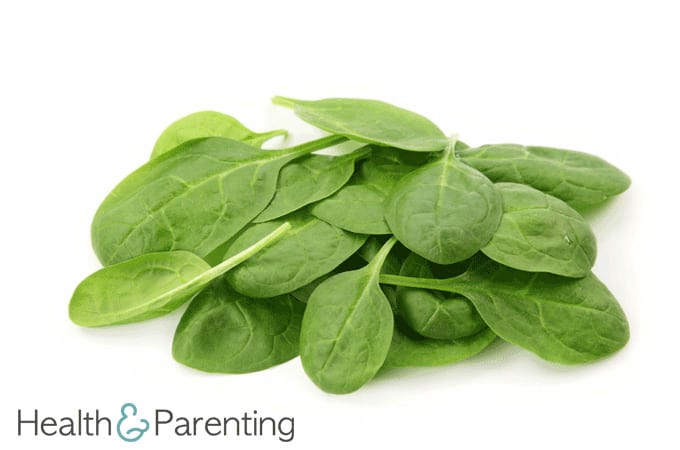Iron is an essential mineral needed by the body to help make red blood cells to transport oxygen around the body. During pregnancy, you need to ensure you are getting enough iron for your baby’s needs as well as your own. Your iron intake becomes increasingly important after week 20 of the pregnancy.
Iron is stored in the body, but by week 20 these stores will be running low. From week 20 onwards, your baby requires more iron than before. If you aren’t getting enough iron during the second half of the pregnancy, you may find yourself lacking in energy.
Eating enough iron during pregnancy
It is possible to get all of the iron you need during pregnancy through your diet. Be sure to eat lots of iron-rich foods every day as part of a healthy balanced diet. Green leafy vegetables, nuts, dried fruit, seeds, pulses and lean meat are all foods naturally high in iron. Breakfast cereals fortified with iron, black molasses, seaweeds, parsley and watercress are also good sources of dietary iron. Cooking food in ironware also adds a small amount of iron into your diet.
Liver is a good source of iron, but should not be consumed during pregnancy. Liver is rich in vitamin A which can harm the baby if consumed in large quantities during pregnancy, so pregnant women are advised to avoid liver.
Consuming vitamin C with iron aids iron absorption. Try to have a glass of orange juice, or eat an orange, with your iron-rich lunch. If you’re taking iron supplements, take them with a glass of orange juice to help your body get the most out of them.
Iron supplements during pregnancy
In the UK, women are not advised to routinely take iron supplements during pregnancy because of the risk of side effects. Possible side effects include constipation, diarrhoea and nausea. If you are suffering from low iron levels or anaemia, however, your healthcare provider may recommend that you take supplements for the remainder of the pregnancy.
In the US, it is more common for pregnant women to take iron supplements during the second half of pregnancy, and many prenatal vitamins contain added iron. Speak to your healthcare provider about the possible need for iron supplements during pregnancy.
Anaemia during pregnancy
Anaemia is a common complaint during pregnancy. You require extra iron during pregnancy to ensure your baby is getting enough oxygen and nutrients in the womb. You have an increased risk of developing anaemia during pregnancy if you suffer from severe morning sickness, are carrying multiple pregnancies or have recently had a baby. Symptoms of anaemia include feeling tired and weak, as well as dizziness, headaches and heart palpitations. Contact your healthcare provider if you think you may be suffering from anaemia.
Written by Fiona (@Fiona_Peacock), mother, writer and lover of all things baby related.
This information is not intended to replace the advice of a trained medical doctor. Health & Parenting Ltd disclaims any liability for the decisions you make based on this information, which is provided to you on a general information basis only and not as a substitute for personalized medical advice. All contents copyright © Health & Parenting Ltd 2018. All rights reserved.










